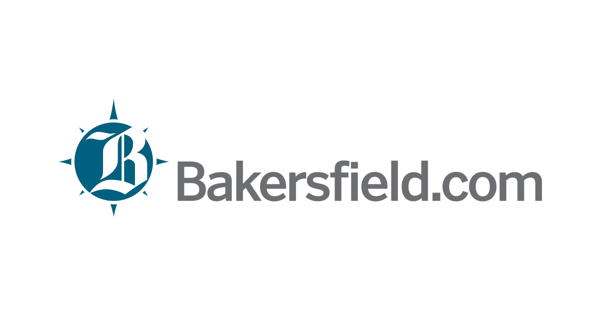Amid a recent county surge in HIV and STD infections, Kern health officials plan to roll out an ad campaign on Grindr, a dating app designed for gay, bisexual and transgender men.
The new campaign is a part of Kern County Public Health Service’s attempt to show some creativity in how it reaches people vulnerable to infectious diseases.
“This is the first time we’ve done something like this,” said Patrick Salazar, a program manager with Kern Public Health. “We’re going to give it a try and see if this is something we can continue doing, and if so, could we do this on other platforms that people use for hooking up.”
For people using the app, the ad should be pretty straightforward: a banner ad, seated at the bottom of the screen, will pop up just like any other ad. Attached to the banner will be an email address, a Kern County logo, and a brief message.
“We have to keep our message really short and to the point, so it’ll be like ‘did you know we have in Kern high rates of STDs and HIV?’” Salazar said. “‘Are you interested in learning more about testing? Access here.’”
Upon clicking the link, a user will be sent to a county website, with directions to informational guides and resources, like free HIV testing provided by the state’s Take Me Home initiative. Much like the testing, Salazar said, the ad will be paid for by a $25,000 state grant.
According to Kern Public Health, countywide cases of HIV and other sexually transmitted diseases rose at historic levels in 2021. Salazar said they reported 182 cases of HIV alone, and said that someone is 114 percent more likely to contract it than they were 20 years ago. Similar, if not worse, situations can be drawn out for other infections such as syphilis and gonorrhea.
“We haven’t seen numbers like that since the early-on years of the epidemic,” Salazar said, adding that it’s important to consider population growth. “Still, this is a concerning number for us because it shows people need to be more aware of this and seek out testing.”
Grinder, which is used by more than eleven million people worldwide every month, has in recent years become a tool for local governments and advocacy groups to reach out to people to offer HIV services.
“We do hear many times,” Salazar said. “Through our investigations, when we ask people how they met their partners, they would tell us ‘I don’t have their contact information because I met them on Grindr or Tinder,’ where things are more anonymous.”
An HIV test requires no drawn blood, and produces results in 20 minutes. Yet a process this simple is largely not accessed, especially in the United States by young, gay black and Hispanic men, who are most likely to be infected with HIV, and the least likely to receive necessary services.
“It’s among other populations, particularly cis-gender men of color that don’t have the same kind of social support that causes them to get frequent testing,” said Dr. Jeffrey Klausner, a professor of medicine and infectious diseases at the University of Southern California. “Many of them may not be as ‘out,’ or to the awareness of their family or friends. Grindr provides a private way that people can get tested and get services.”
Klausner, along with several researchers at UCLA, released a study in 2016 that advertised free HIV self-test kits on the app in Los Angeles County for one month. According to their study, about 25 percent of gay men in Los Angeles County are HIV-positive but don’t know it.
“Grindr provides a very cost-effective way to geographically target and socially target messages,” Klausner said. “We have found that people increasingly expect when they use Grindr that they’re getting different prevention messages and wellness messages.”
The ads directed users to the study’s website, where they choose to order a test through the mail, redeem a voucher at a pharmacy, or found a code they could enter into a vending machine outside the Los Angeles Gay and Lesbian Center. Some 334 men requested a test, with 74 percent asking for a test by mail.
Similar campaigns have been used in California cities such as Los Angeles and San Francisco, with both yielding positive results.
“I’m very happy that Kern County is thinking about doing this,” Klausner said. “Often we see this kind of thing in cities like San Francisco and Los Angeles, where they may be more on the cutting edge of things.”
Since the study, Klausner said, he has seen similar studies conducted on a national level, including one that he recently completed with the National Institute of Health.
With this expansion, they’ve included not only the same links to free testing, but also free PrEP, or prophylaxis, an HIV medication, so they don’t get infected in the future, which shows how health departments are trying to keep up with the times.
“When we had the monkeypox outbreak, health departments were using Grindr as an outreach tool, to make people aware about how to get vaccinated, where to get tested and what monkeypox was,” Klausner said.
During the pandemic, Kern Public Health received state and federal funding to run advertisements on billboards and social media for vaccines and testing, though they also put annual notices for immunizations and flu shots.
But unlike chickenpox, this ad will require approval by the county’s Board of Supervisors, due to “non-standard” conditions in the contract with Grindr that the county’s legal counsel found as potentially “objectionable,” specifically the company’s policy on auto-renewal and indemnification.
It will come before the Kern County Board of Supervisors during its Tuesday morning meeting.
“This, unfortunately, has taken some time in terms of the contract with Grindr,” Salazar said. “It has taken longer than we would have liked, but we’re excited that it’s finally getting somewhere.”
Salazar said that if the contract is approved, they expect the ads to begin running within two to three weeks.
Discovered on: 2023-02-28 02:15:00
Source: Public Health seeks supervisors’ OK to put STD message on dating app | News



